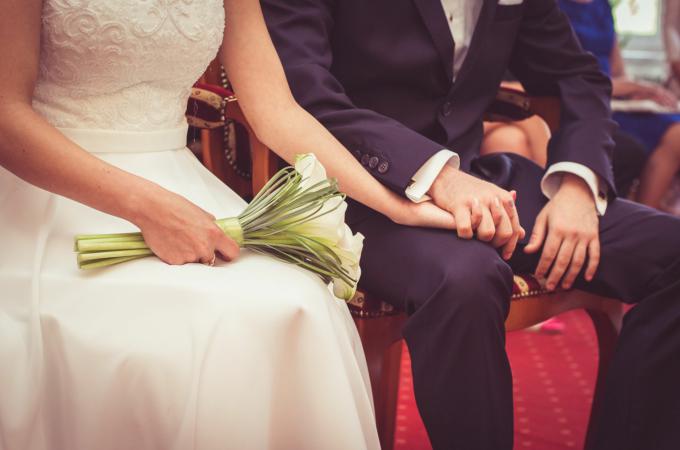Become Catholic to marry?
Q. I was browsing the internet today, ran across your column and have a question. I am in a long-term relationship with my partner, and we are planning on getting married next year. But we are having some conflict as to where (i.e., in what church) we are going to celebrate our wedding.
My family are all born-again Christians and actively participate in many church activities and ministries. My partner, though, is a devout Roman Catholic and wants me to become a Catholic. I am having a hard time deciding and it is causing communications problems in our relationship.
(My parents would never accept the fact that I could change my religion.) Please help me because I am confused. (City of origin withheld)
A. Your question presents several distinct issues, so I'll take them one by one. On the location of the wedding ceremony, that's the easy part. You can have the ceremony either in your own family's church or in the groom's Catholic parish.
More often, marriages are celebrated in the church of the bride; if you decide on that option (the born-again Christian setting), you and your partner would simply have to meet with a priest prior to the wedding and fill out some short paperwork to have the marriage recognized by the Catholic Church.
The issue of joining the Catholic Church is more difficult. You should not become Catholic just because your spouse-to-be wants you to -- or simply to "make things nice" for the wedding. You should only become a Catholic if you believe in the fundamental truths taught by the Catholic Church.
I choose to be a Catholic because I feel that the Catholic Church has a continuous and unbroken relationship with the faith community that Jesus established, I see the logic of a central authority on doctrinal matters and I prefer to be strengthened by the frequent celebration of the Eucharist and the availability of the sacrament of confession.
I have sometimes counseled couples to separate the decision to marry from a decision to change denominations or religions -- to make sure that these are independent choices.
Finally, though, your question makes me a little bit nervous. I don't like that your husband-to-be seems to be pressuring you to become Catholic. I would recommend that, prior to any wedding, you should sort out the "communications problems" with a marriage counselor -- preferably one who can appreciate the importance of religious values.
Q. I love meditating on the luminous mysteries when I pray the rosary, and I am thankful that Pope John Paul II established them. The joyful mysteries highlight Jesus' early life, while the sorrowful mysteries focus on his suffering and death. The luminous mysteries highlight the "in-between time" -- Christ's public ministry as an adult -- which I have always felt was missing in the rosary.
My question is this: Would it not be more logical to pray the luminous mysteries on Tuesdays (in between the joyful and the sorrowful) instead of pushing them to Thursdays after the glorious mysteries? (Indiana)
A. The mysteries of light -- or the "luminous mysteries" -- were proposed by Pope John Paul II in 2002 in his apostolic letter "Rosarium Virginis Mariae." The reason these mysteries were added was exactly as you indicate: The rosary as it traditionally evolved -- with the joyful, sorrowful and glorious mysteries -- was silent about the public ministry of Jesus.
The luminous mysteries are enumerated as follows: Christ's baptism in the Jordan, the miracle at Cana, the proclamation of the kingdom of God, the transfiguration, the institution of the Eucharist. True, the pope did suggest that the faithful might use these new mysteries when praying the rosary on Thursdays. But if it seems more helpful to you, and more logical, to pray these mysteries instead on Tuesdays, by all means do that -- and I believe that you would have John Paul's backing.
In proposing the new schedule, he said: "This indication is not intended to limit a rightful freedom in personal and community prayer, where account needs to be taken of spiritual and pastoral needs. ... What is really important is that the rosary should always be seen and experienced as a path of contemplation" (No. 38).
- - -
Questions may be sent to Father Kenneth Doyle at askfatherdoyle@gmail.com and 30 Columbia Circle Dr., Albany, New York 12203.
- Father Kenneth Doyle is a columnist for Catholic News Service



















